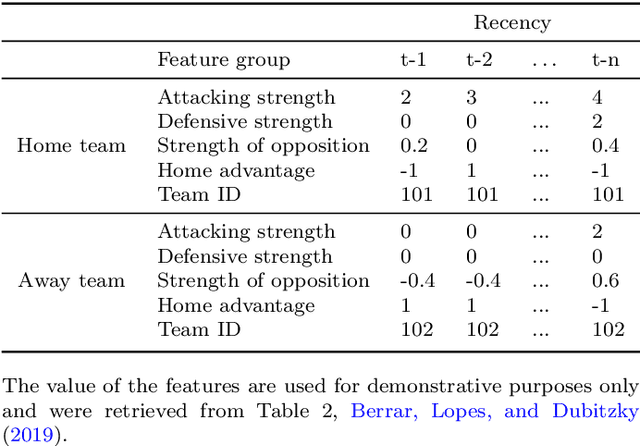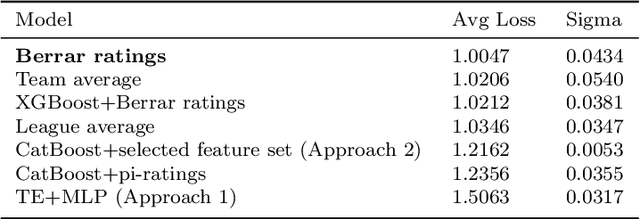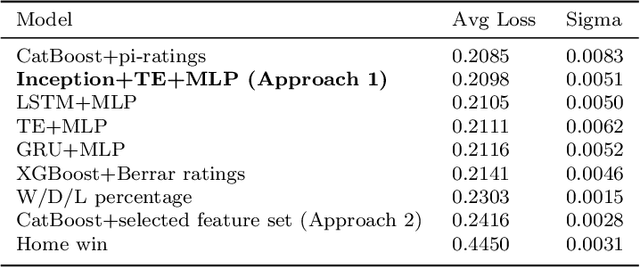Evaluating Soccer Match Prediction Models: A Deep Learning Approach and Feature Optimization for Gradient-Boosted Trees
Paper and Code
Sep 26, 2023



Machine learning models have become increasingly popular for predicting the results of soccer matches, however, the lack of publicly-available benchmark datasets has made model evaluation challenging. The 2023 Soccer Prediction Challenge required the prediction of match results first in terms of the exact goals scored by each team, and second, in terms of the probabilities for a win, draw, and loss. The original training set of matches and features, which was provided for the competition, was augmented with additional matches that were played between 4 April and 13 April 2023, representing the period after which the training set ended, but prior to the first matches that were to be predicted (upon which the performance was evaluated). A CatBoost model was employed using pi-ratings as the features, which were initially identified as the optimal choice for calculating the win/draw/loss probabilities. Notably, deep learning models have frequently been disregarded in this particular task. Therefore, in this study, we aimed to assess the performance of a deep learning model and determine the optimal feature set for a gradient-boosted tree model. The model was trained using the most recent five years of data, and three training and validation sets were used in a hyperparameter grid search. The results from the validation sets show that our model had strong performance and stability compared to previously published models from the 2017 Soccer Prediction Challenge for win/draw/loss prediction.
 Add to Chrome
Add to Chrome Add to Firefox
Add to Firefox Add to Edge
Add to Edge